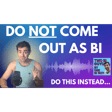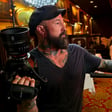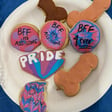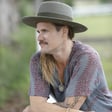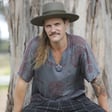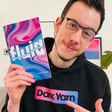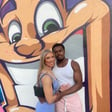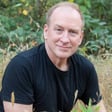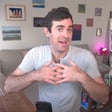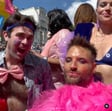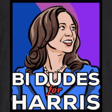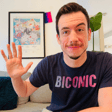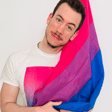
From Boy-Crazy to Everybody-Crazy: Step Bi Step with Laura Clarke
Award-winning sex and gender specialist, sex educator, and now author Laura Clarke joins me to talk about her brand-new book “Step Bi Step: The Ultimate Guide for Bisexual, Pansexual, and Queer Young People”. Written with warmth, humor, and clarity, Laura’s book fills a gap for teens just beginning to explore their sexuality — and offers parents, teachers, and anyone curious a simple, compassionate introduction to bi and other queer identities.
We discuss Laura’s own “bisexual teenage montage,” how she discovered and named her attraction, and the internalized biphobia she had to unlearn. She shares why she wanted to create a resource that feels safe, inclusive, and non-patronizing — something she wished she had at 13. We also get into writing for a younger audience, balancing humor with heavy topics like biphobia and representation, and how exploring bisexuality can strengthen relationships rather than threaten them.
Whether you’re a teen, a parent, or simply bi-curious at any age, this conversation offers insight, validation, and a reminder to take things one step at a time.
Bonus content with Laura on Patreon: https://www.patreon.com/c/robertbrookscohen
Sign up for Rob’s newsletter: https://www.robertbrookscohen.com/newsletter
Sign up for a free intro call with Rob re: individual coaching: https://calendly.com/robertbrookscohen/25-minute-free-intro-call
Buy “Step Bi Step”: https://uk.bookshop.org/p/books/more-than-one-a-handbook-for-bi-teens-laura-clarke/7744481?ean=9781805017516
Laura’s Website: https://www.mybodyandyours.com/
Follow Laura on IG: https://www.instagram.com/mybodyandyours
Follow Laura on TikTok: https://www.tiktok.com/@mybodyandyours


